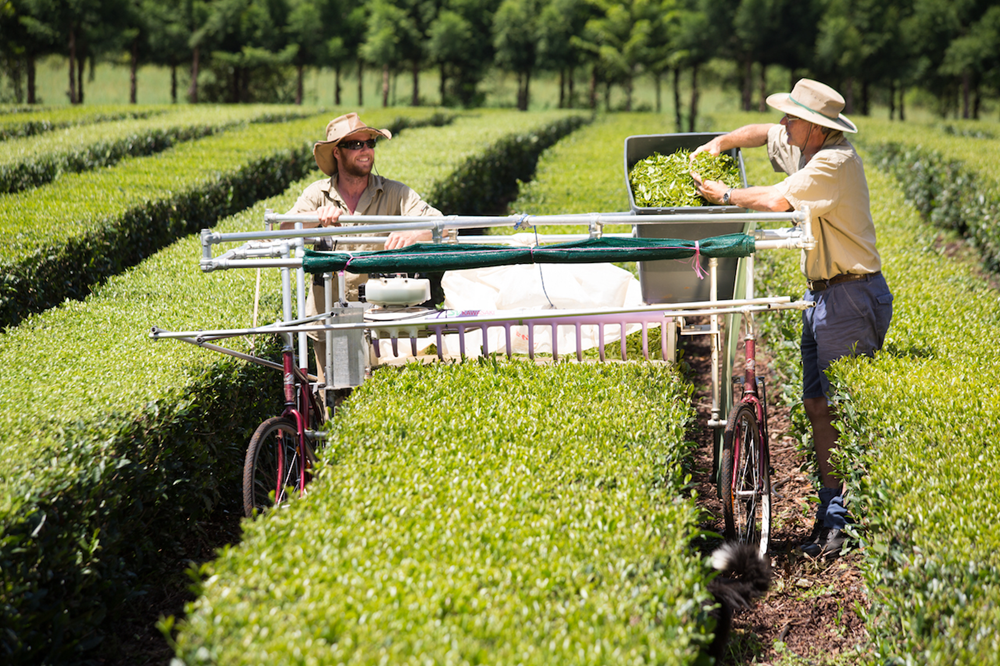
SEPTEMBER 2016
Australia has so far avoided major weather events that in previous years damaged crops across the country’s plantations, however a strong El Niño brought additional drought to some areas in mid north Queensland.
In spite of this, monthly exports of green tea from Australia to Japan have nearly doubled since last year, bringing further income to producers. The country exported 50 metric tons to Japan in May 2016, in comparison to just 27 metric tons in May 2015. Overall 2016 has been a strong production year for Australia.
Australians have a history as black tea drinkers following their mostly British heritage, but that is rapidly changing. Residents are known for drinking a classic style of black tea called “Billy Tea’” and this was well known in the 1800’s and early 1900’s. It was almost always consumed with milk and sugar. Instead of the traditional black mid-grown pekoe style teas of Sri Lanka and full bodied Assams from India, people are now discovering Darjeelings, Keemuns, Himalayan black teas, and are moving away from the classic fannings in a tea bag. For convenience pyramid style tea bags are becoming more and more popular and so are full leaves.
There is growing interest in green teas, wulongs and other more interesting handcrafted teas from different countries around the world. Still, by world standards Australians don’t rate that high in consumption, ranking 55, below our island neighbors in New Zealand.
There is a lot more interest in growing tea in Australia, some for the commercial market, but more and more some small niche growers are popping up.
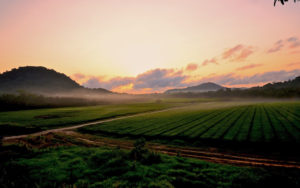
What follows is a whirlwind tour of the plantations of Australia beginning in Northern Queensland.
Daintree Tea Company is located on the Cubbagudta Plantation, situated in the heart of the Daintree wilderness and rainforest area in North Queensland. The estate was established in 1978 and is a family owned tea company. The plantation, known for a rich, medium-body black teas, does not use pesticides. Production minimizes tannic acid and the teas are very low in caffeine. Teas are sold online. Parties outside Australia are responsible for import/export taxes and/or other fees.
The Nerada Plantation in Queensland, is Australia’s largest tea producer with more than 1,000 acres of tea planted on the Cairns Highlands. Nerada delivers 6 million kilograms of fresh tea leaves to the Nerada Tea processing factory annually. The processing factory at Glen Allyn turns these tea leaves into 1.5 million kilos of black tea which is packaged in Brisbane for sale worldwide.
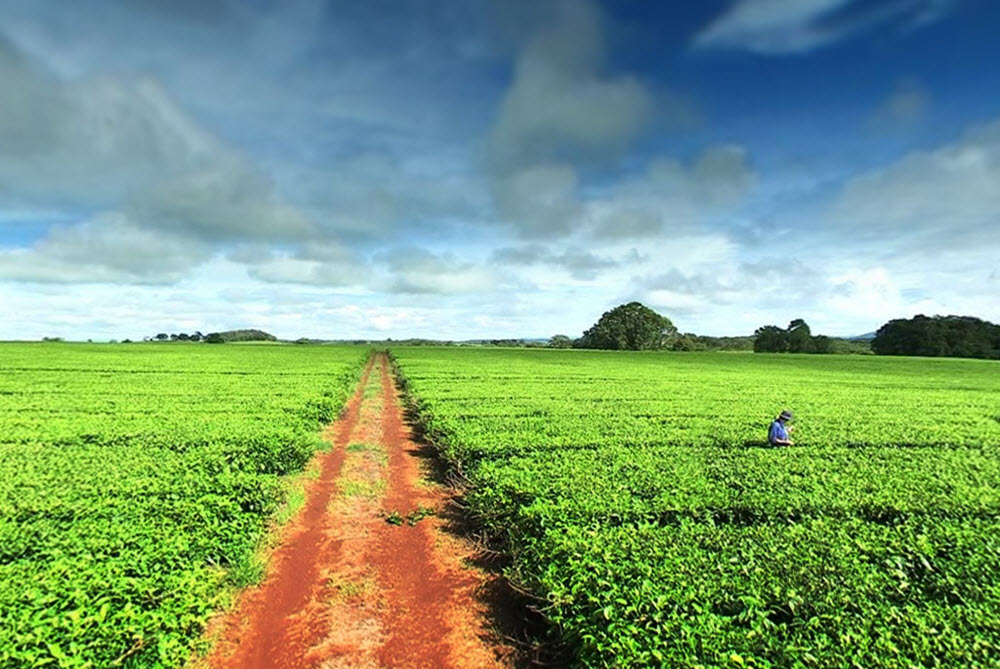
Nucifora Estate thrives in the wet tropics of far north Queensland near Innisfail and in the rich agricultural district known as Palmerston. This plantation is approximately 15 years old and uses no pesticides. The plantation covers over 150 acres and produces black tea.
The 150 acres is divided into 3 sections so harvesting is a continuous process. Every 21 days each bush has only the top 2 leaves and the bud picked so harvesting is always fresh.
The award winning Arakai Estate, is located in Bellthorpe in Queensland. The garden began as a timber plantation along with growing avocados. Owners sought a complimentary crop so after doing the initial research and testing, it turned out Bellthorpe was ideally suited to growing Camellia sinensis and these conditions could create a high quality tea. Good elevation, rainfall, and fertile soils with the correct acidity were all part of the package. Over three years they planted 12,500 seedlings including six different Japanese green tea varieties on a hectare of land. The plantation now has more than 5km of tea hedges that are meticulously maintained to allow for machine harvesting of the freshest tips.

One unique aspect Arakai tea is the use of Taiwanese methods, producing distinctive flushes of green and black teas.
In northern New South Wales Madura Tea cultivates 250,000 tea bushes, nestled in Murwillumbah, a region of pristine rainforests, streams and rivers. The plantation produces premium black teas that are blended with teas from Sri Lanka and India to produce the Madura range. The estate offers tours with facilities for special events.
In Victoria the Two Rivers and Alpine Tea Co estates grow sencha style Japanese teas for Ito En as well as their own brands.
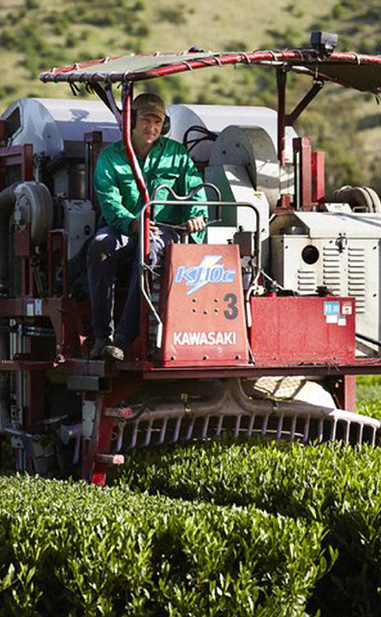
Two Rivers Green Tea is a family tea farm northeast of Melbourne in the Acheron Valley at the junction of the Acheron and Goulburn Rivers. This plantation is located at the same latitude as Shizuoka the main tea growing area of Japan. There are four distinct seasons in the fertile river flats that offer beautifully drained soil with a plentiful water. The estate planted 170,000 tea plants in 2001.
The three main varieties of C. sinensis grown in these regions are Sayamakaori which is the earliest of our varieties to flush and easily recognizable by its deep green leaf. Next is Yabukita which is the most widely grown variety in Japan and Okuhikaori which is bred from Yabukita and the last cultivar to mature.
Across the mountain lies the Alpine Tea Company, located in the beautiful Kiewa valley in southern Victoria approximately 30 kilometres from Falls Creek, well-known ski resort. Yabukita varietals grow well in this region and are ideal for producing a roasted Hojicha style tea. The fresh leaf is processed in Wangarratta where the first step involves steaming. The tea is then rolled and dried for a couple of hours to produce the high-grade classic style sencha.
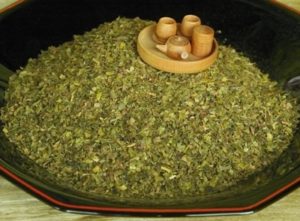
Dry Ideas is the oldest commercial grower and processor of Japanese tea varietals in Australia. It is located in the Huon region in Tasmania which is also famous for its beautiful timber. There are no pesticides used and solar panels power irrigation and the drying of the teas. Australia is not sleeping when it comes to tea.